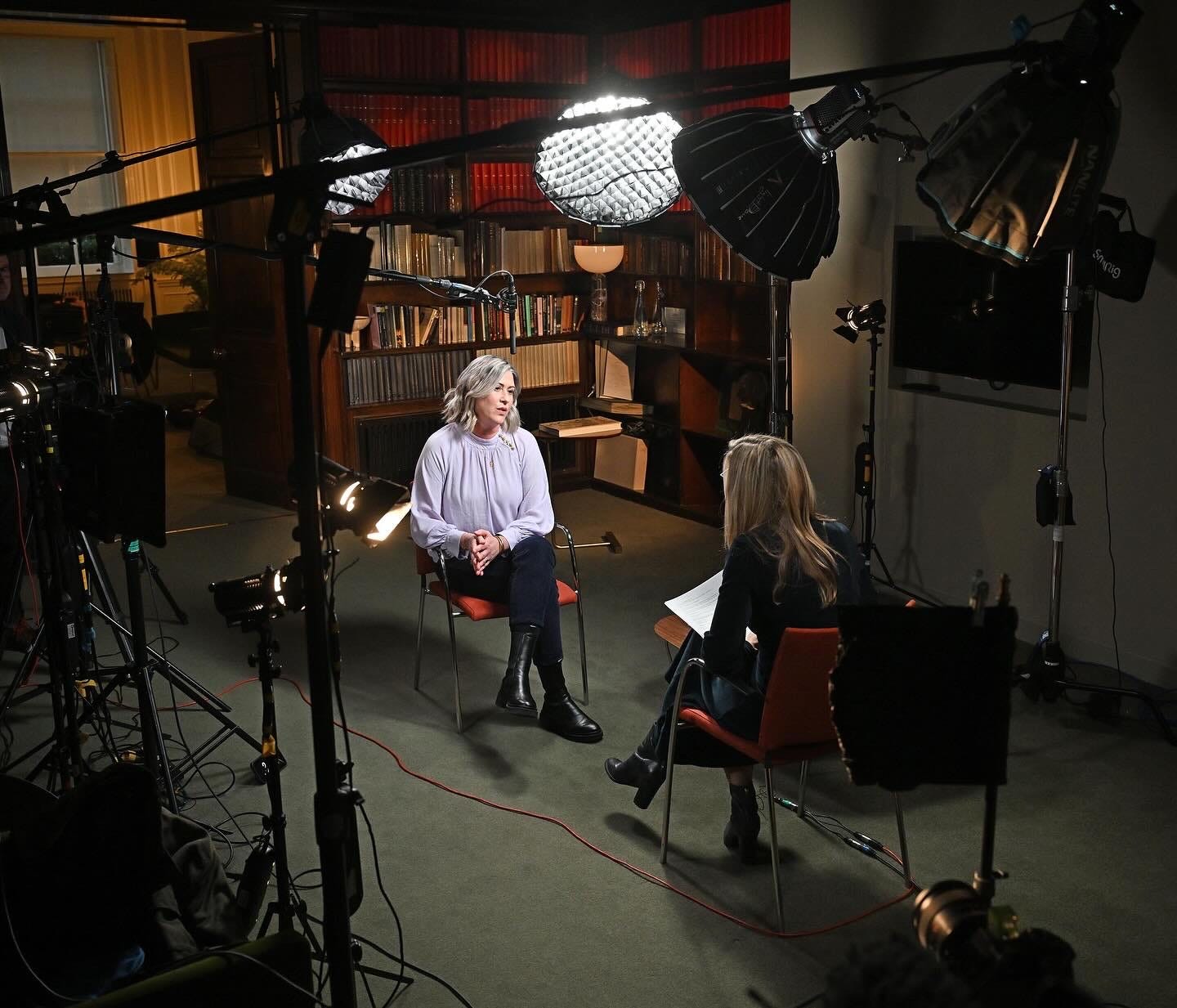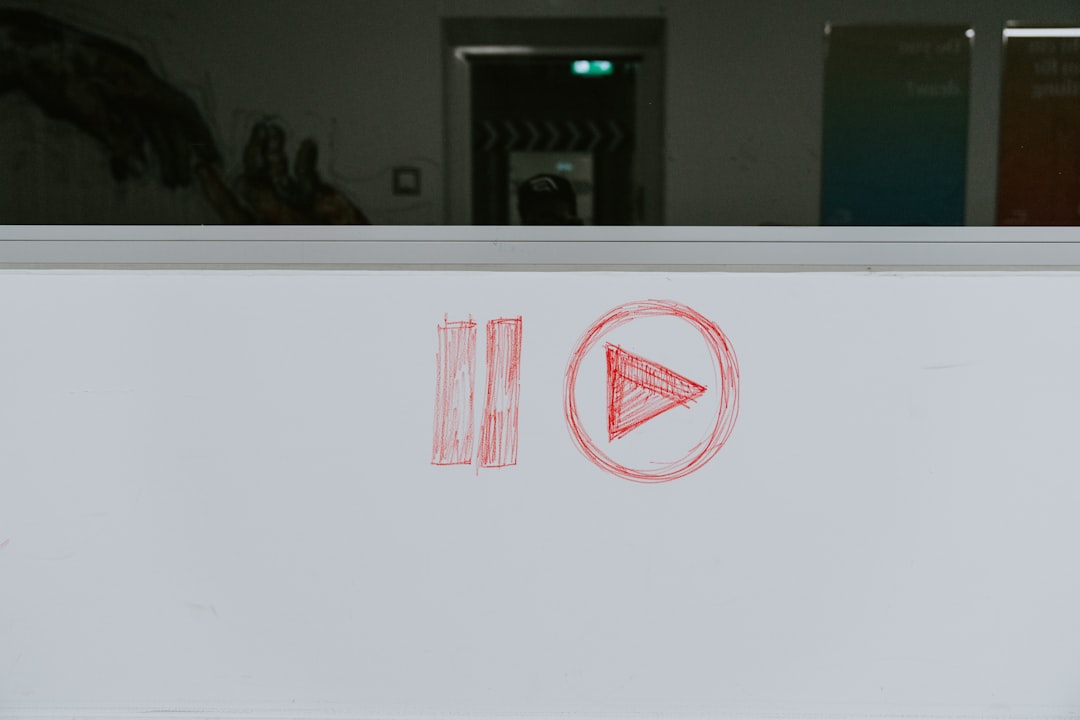It has been a couple of weeks since my exclusive interview with Caroline Darian, was broadcast and still people, largely women I have to say, are coming up to me at events and in the street, to try to find the words in response.
I feel it is our duty to look horror in the eye where we can. Not all of the time - that wouldn’t be possible nor advisable. But if someone is willing to share their story of surviving what we don’t think is possible for people to do to one another, the least we can do is listen; engage and try to confront it.
You can watch the full interview for yourself here or listen to the radio version from the Today Programme where I work. Above is the video I made straight after interviewing her.
And below is the column I penned two days later for The Times. I am still thinking about Caroline, Gisele and the family. But I am also still thinking about the actions of Dominique Pelicot and those 50 other men.
Caroline Darian walks into the room for our interview, quietly, with little fuss, accompanied by two women from her publisher. I greet her, vacating the makeup chair, so she too can have a bit of pampering that might make her feel her best self, ahead of a conversation which will reveal details of an experience few can imagine living through, let alone surviving.
But she has. And some. It’s astonishing but also what I expect, having spent the last few days reading her bluntly-written and powerful book: “I’ll Never Call Him Dad Again.” Softly but clearly spoken, she walks tall with pride and dignity, embodying what became her mother’s mantra during France’s biggest rape trial: “shame must change sides”. I can tell that this is a woman who is hellbent on surviving and tackling her new mission: to stop chemical submission, the drugging of women by men so that they can abuse them - like her father repeatedly did to her mother.
Caroline bears the burden of being the daughter of both Gisele and Dominique Pelicot - one now a global feminist icon for waiving her anonymity so the world knew what her husband had done to her, alongside at least 50 other men, for the best part of a decade. The other? One of the world’s most famous abusers and perverts, as Caroline bluntly puts it. It is a horrific position - being the child of the torturer and tortured.
Small-talk before an interview laced with emotion, tension and pain is often thin on the ground and I am not a fan of it generally. I can also tell she is trying to get into the zone - as well as think of the right words in a second language - so we don’t say much to one another beforehand - but what we do say is warm and sincere. That’s important - especially after what she and her family have endured. This is her first broadcast interview since the end of that grim trial last month, when her father and 50 men of all ages, were finally found guilty of raping her drugged mother, and sentenced to prison. She needs to feel I am present and across all of the different details.
But what I realise as we both sit down and have our microphones attached, is how deeply affected I have been by Caroline and Gisele’s respective stories. Many of us have. And how important it is that I ask some of the most difficult questions directly in order for Caroline to be heard properly and the clearest answers solicited; so that we as a society, don’t just chalk up her father’s actions to those of a monster or a mentally unwell person.
In fact Caroline is at pains to stress her father isn’t unwell, he is a sexual pervert and a very dangerous man, whom she believes should die in prison.
We begin.
And from the moment we do, Caroline locks eyes with me. It’s intense. As it should be. But it also means I am now walking along the path with her - as she recalls the horror of finding out what her dad, to whom she was so very close, had been doing to her mother. “It was like an earthquake or a tsunami in my own living room [when my mum called]…You can’t imagine the hurt…It was a nightmare.”
I notice her voice is stronger now. There is anger and pain - but also a steeliness propelling her forward.
Then I ask her a question I have never asked anyone so directly before: “Do you believe your father raped you?”
This is after she describes the police showing her photographs of her younger self, in her twenties, in her underwear on the bed in her former room at her parent’s house, that she has no recollection of but her father took - in the same position he put her mother into when publishing similar drugged shots of her online.
And for a moment it is like time stands still. And then she replies with the most heartbreaking and horrifying thing: “I think so. I’m convinced that he raped me, yes.”
Dominique Pelicot has always denied it. But she is convinced, and like so many other forgotten victims, lacks evidence to conclusively prove it.
The only time she nearly cries, where tears brim just to the edge of her eyes, is when she explains telling her then six-year-old little boy, who adored his grandfather, what his grandpa had done; “the entire truth” and that he will never see him again. Can you imagine?
And that’s the crux of it. This is, when you boil it down, a story of an ostensibly regular family that loved each other and holidayed together, being totally annihilated. The strain that enters Caroline’s face when she talks about her mother not being able to process or engage with the reality that her father may have also raped her, their daughter, is palpable even though she retains respect and love for the woman so many have taken to their hearts.
It is a conversation like no other I have conducted. It is an interview that has burrowed itself deep into my soul and psyche and at the end of it, I feel totally devastated for her and her family. I can’t shake the feeling for days. I still can’t really. It isn’t about me. It never is.
No one can give Caroline Darian back her childhood or the man she trusted to care for her unconditionally. You can’t just get another father or a whole new set of memories. But what we can do is make ourselves listen and confront a reality so cruel and sadistic that we want to look away. But Caroline Darian, just like Gisele Pelicot, must be heard.















Share this post